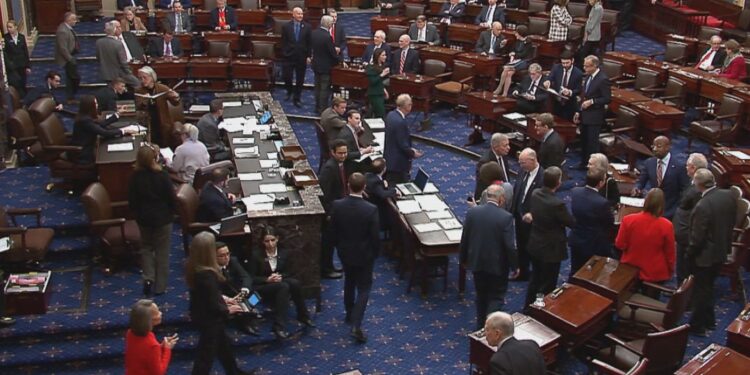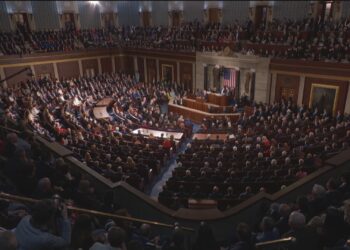WASHINGTON, D.C. – Senators are gearing up for a long night of voting on the Republican budget blueprint. It would slash spending and make the 2017 tax cuts permanent. Democrats will try to make this effort as politically painful as possible by proposing and voting all night on amendments.
Overall, the budget blueprint would increase the debt limit, slash spending, expand American energy production and make President Donald Trump’s 2017 tax cuts and jobs act permanent.
“I do understand that Democrats are uncomfortable with the idea of tax relief; when you think that government knows best and when your enthusiasm for new government programs is virtually unlimited, it’s no surprise you prefer to maximize the flow of taxpayer dollars to the government,” said Sen. John Thune (R- SD), Senate Majority Leader. “But Republicans believe fundamentally that Americans know best what to do with their money.”
But Democrats said this resolution lays the groundwork for increasing deficits and will cut Medicaid and nutritional assistance to help pay for these tax cuts.
“The White House and Republicans here in congress are actively working right now to give a big tax break to billionaires, not every day working people, billionaires,” said Sen. Gary Peters (D- MI).
Democrats are using as much time on the floor for debate before they get into what’s called a “vote-a-rama”. It’s an all-night voting frenzy where Senators vote on a slew of amendments. Democrats see this as an opportunity to put Republicans on record for a number of items, like Medicaid cuts. Senator Chuck Schumer (D- NY) said they are proposing one amendment, which target’s Trump’s tariffs.
“The amendment will make sure any tariff put in place after January 2025 will be rescinded if it increases the cost of groceries, medicines or other secondary goods,” said Sen. Schumer. “We will leave in place the tariffs only on China, Russia, Iran and North Korea.”
Even though Democrats said they will put up a fight, we expect the budget blueprint to eventually pass the Senate. It will then head to the House where we expect some fiscally conservative Republicans will put up their own fight over federal spending amounts in this blueprint.








